MS-ETS1-4
Develop a model to generate data for iterative testing and modification of a proposed object, tool, or process such that an optimal design can be achieved.
-
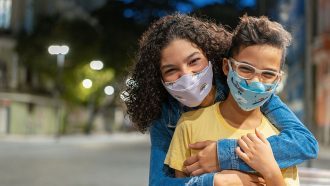 Materials Science
Materials ScienceCopper ‘foam’ could be used as filters for COVID-19 masks
The lightweight new material could serve as a washable and recyclable, eco-friendly alternative for many current mask filters.
By Sid Perkins -
 Physics
PhysicsLight levitation might help explore Earth’s ‘ignorosphere’
A toy called a light mill inspired researchers to invent a new way to fly. They’re using light to levitate small nanotube-coated discs.
-
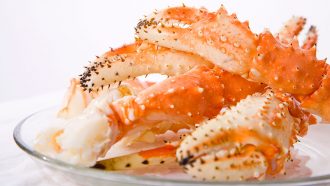 Materials Science
Materials ScienceBandages made from crab shells speed healing
The chitin in seafood wastes, insect “bones” and fungi is a chemist’s dream. Used in a new medical dressing, it beats regular gauze for wound healing.
-
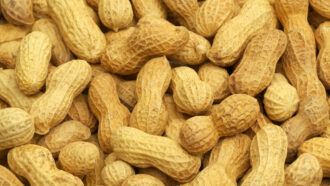 Health & Medicine
Health & MedicineCould a toothpaste help treat peanut allergy?
By rolling an immune therapy into a toothbrushing routine, one company hopes to show its product can build and maintain tolerance to peanut allergens.
-
 Physics
PhysicsGetting cozy with a science experiment
Items you use in your home can inspire a scientific experiment.
-
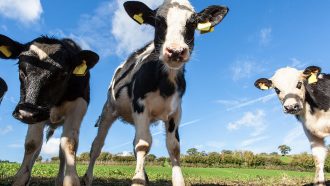 Animals
AnimalsAnalyze This: Cows burp less methane after early-life treatment
Calves that receive the 14-week treatment belch less of the greenhouse gas, possibly due to shifts in their gut microbes.
-
 Environment
EnvironmentCOVID-19 cut pollution in 2020, warming the atmosphere
Pandemic-related lockdowns briefly warmed the planet. The reason: The cleaner air carried fewer planet-cooling aerosols.
By Sid Perkins -
 Tech
TechTraining AI to be really smart poses risks to climate
As artificial intelligence models grow larger and consume more energy, experts have begun to worry about their impact on Earth’s climate.
-
 Science & Society
Science & SocietyMachine learning includes deep learning and neural nets
By combining patterns found in mountains of data with information gleaned from mistakes, these computer programs expand their artificial intelligence.
-
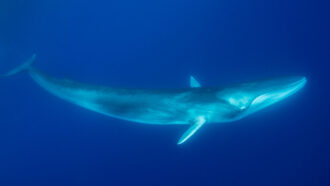 Earth
EarthFin whales could help scientists map what lies below the seafloor
Fin-whale calls are loud enough to penetrate into Earth’s crust, offering scientists a new way to study the properties of the ocean floor.
-
 Science & Society
Science & SocietyNew technology can get inside your head. Are you ready?
New technologies aim to listen to — and maybe even change — your brain activity. But just because scientists can do this, should they?
-
 Animals
AnimalsNewfound technique allows some tree snakes to climb wide trees
When a tree is too wide to climb, brown tree snakes use a lasso-like trick to slowly ascend up to snacks.